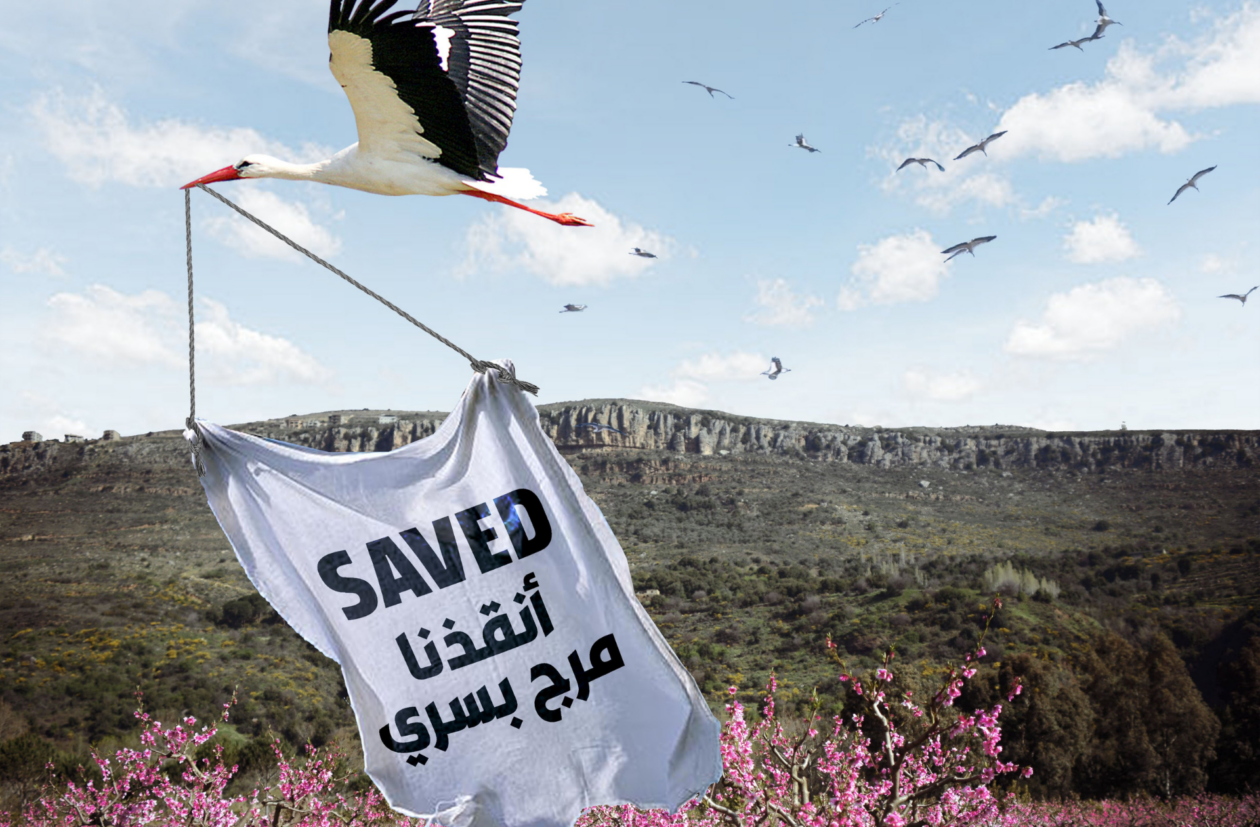By Julia Woods, Communications Specialist

The beautiful Bisri Valley near Beirut is considered one of the most biodiverse and culturally significant landscapes in Lebanon, and many local farmers depend on the land for survival. Unfortunately, the valley is threatened by the proposed construction of a $617 million mega-dam project, approved by the World Bank back in 2014.
Now there is reason to celebrate. On September 5, 2020, the World Bank officially canceled its $244 million loan for the Bisri Dam project, citing that the Lebanese government had failed to address technical, economic, environmental, and social considerations.
Save the Bisri Valley received $5,000 from Global Greengrants in January 2020 to pressure The World Bank to withdraw financing for the project. The group aimed to expose the dam’s violation of The World Bank environmental policies on local and international media and promoted media coverage of the lawsuit Save the Bisri Valley filed against The World Bank. They also organized weekly walking tours across the Bisri Valley to showcase the region’s unique biodiversity to citizens, raising awareness and mobilizing the local population against the dam project.
Another grantee, Lebanon Eco Movement, received $5,000 in 2019 to raise local awareness about the threats of the Bisri Dam, with a specific focus on engaging young people in resistance efforts. They formed an advocacy campaign targeting the World Bank as the main lender of the Bisri Dam, mobilizing students and residents to persuade key decision makers at the Bank to suspend funding for the project. Funding from Global Greengrants helped the group with transportation costs, promotional materials, and to hire an organizer to provide educational sessions in local schools.
Left unchecked, the dam would destroy 6 million square meters of natural land and dismantle more than 50 historical sites, such as the Mar Moussa Church and the remains of a Roman temple. To make matters worse, the proposed dam site would have been located on an active seismic fault, posing risks of reservoir-induced earthquakes.
When land clearance began for the Bisri Dam in October of last year, activists from all over the country camped out in the valley for about a month to stall construction efforts. Protests in the region continue to this day, with modifications to accommodate the COVID-19 pandemic. For example, activists stormed the construction site in April – clad in masks and rubber gloves –and tied themselves to pine trees to express their opposition to the project.
The loan cancellation is a huge victory: one that would not have been possible without grassroots advocacy, organizing, and momentum.
“The cancellation of the Bisri Dam project is very symbolic for Lebanon because it challenges policies that have devastated our environment for years, often encouraged by international financial institutions such as the World Bank,” says Roland Nassour, co-founder of Save the Bisri Valley. “So it means a lot to us in Lebanon, but it’s also a huge victory on the international stage because it is rare that the World Bank would withdraw a loan at that scale. Today is a new chapter for river defenders worldwide. We have proven to the World Bank that they cannot claim to commit to climate change mitigation, sustainable development practice, and participatory projects while investing in mega projects like the Bisri Dam. And we have proven what is possible with the power and momentum of well-organized civil society. Thank you to Global Greengrants Fund for helping to contribute to this major victory.”
Photo credit: Save the Bisri Valley
